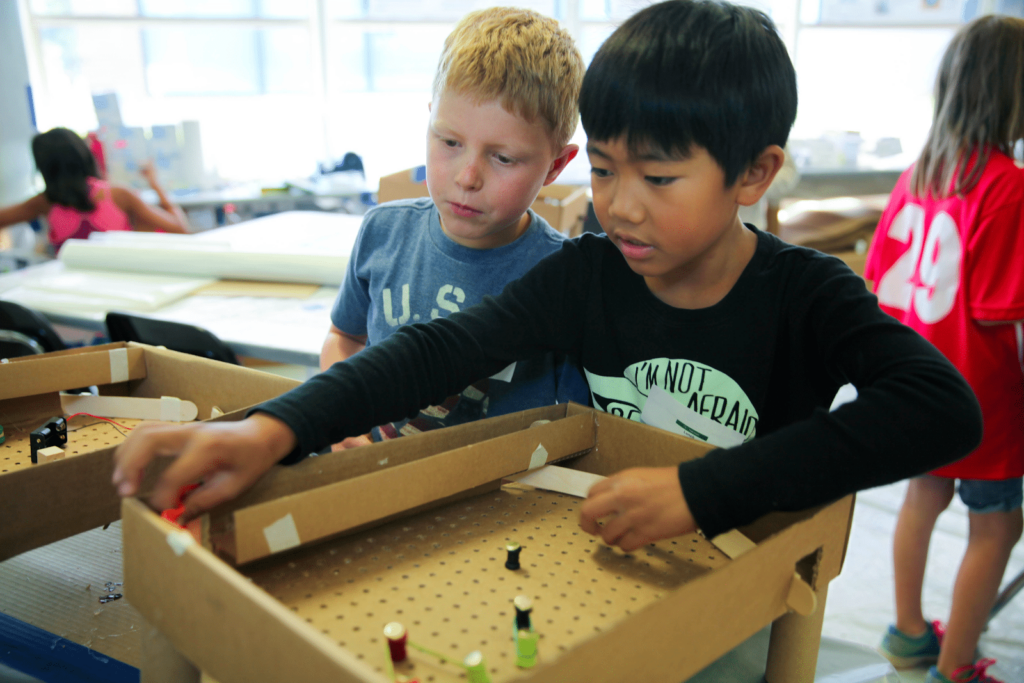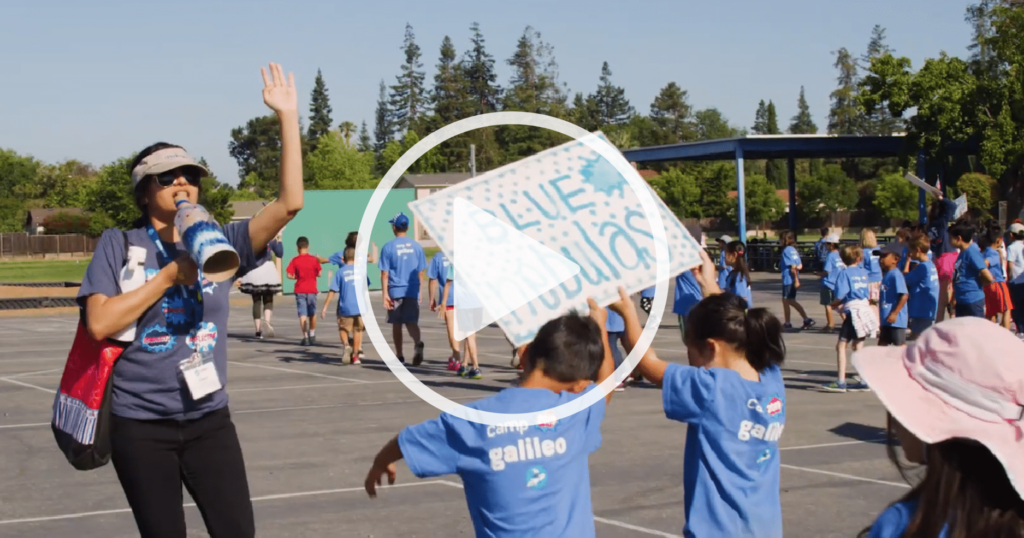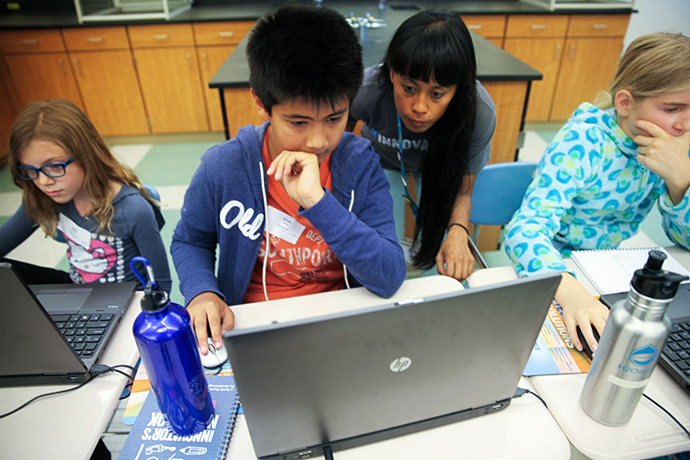Brain-based learning — what does it mean, and why is it important? Our brain is an incredible organ that changes every day throughout the course of our lives. This ability to change and adapt to learning, experiences and even after an injury is known as neuroplasticity. When challenged appropriately, the brain grows stronger and makes connections. Without challenge, it can languish, weeding out unused connections through a process called pruning. Neuroscience research has provided a great deal of insight into how kids learn.
At one time, schools and educators were the keepers of knowledge. People with access to an education were privileged, while those without faced socio-economic disadvantage. The arrival of the information age has changed that dynamic. Since information and content knowledge is available everywhere now, or at least as close as the nearest internet connection, schools and parents have a different responsibility. With ready access to content, 21st-century learners need to know where to find information and how to process it. Raising kids capable of critical and innovative thinking means helping learners acquire skills and develop qualities that include creativity and confidence. Inspiring them with brain-based activities optimizes learning and motivates kids to persevere.
Supporting the Developing Brain
As parents, we try to help our kids overcome challenges. This might include help with homework, physical hurdles and relationship troubles. We want to provide the best learning opportunities to enhance their skills and help our kids reach their full potential. So, what can parents do to ensure kids have access to brain-based learning activities that really make an impact?
- Start at the dinner table — One opportunity to provide healthy brain-stimulating conversation occurs every evening at the family dinner table. For 20 years, Harvard Graduate School of Education’s The Family Dinner Project has studied the impact that family dinners have on developing kids. Data has shown that when kids regularly experience family dinners, they have lower rates of substance abuse, teen pregnancy, eating disorders and depression. They also have higher grade point averages, are more resilient and have more self-esteem. Families wishing to optimize this important time together can use the project’s Dinnertime Conversation Starter Cards and their family-friendly recipes to get the ball rolling.
- Make learning a multi-sensory experience — Judy Willis, MD, MEd, neurologist turned educator, applied her detailed knowledge of the developing brain to teach elementary and middle school kids. She advocates multi-sensory learning experiences. When kids use their eyes (visual), ears (auditory), voice (vocal) and body (kinesthetic) in the process, they activate the corresponding centers in the brain. As they interact with and practice the content, neural connections are made and strengthened.
- Keep it positive — Positive emotions have a strong impact on learning. When learning is fun, the brain is attentive and kids are motivated; they remember more of what they read and hear. The newly learned material is more efficiently stored in long-term memory. Maintaining a positive outlook requires keeping mind and body well-rested and well-fed.
- Appeal to curiosity — Curiosity wakes up the brain, making it more receptive to learning. When you hook kids with a provocation or phenomenon that catches their interest, the resulting curiosity will make them more attentive and susceptible to learning, even unrelated things.
- Engaging kids’ passions — Allowing kids to engage their interests and passions has a positive impact on learning as it activates the emotional centers of their brains. One example is the maker movement in which kids exercise creativity and take action to solve problems of importance to them.
- Make it social — Humans are very social beings. Researchers have determined that even as infants, we are drawn to human features. In school, teachers take advantage of this fact when they implement cooperative learning. In a group setting, kids feel supported and empowered to take risks.
- Encourage a growth mindset — Dr. Judy Willis suggests teaching kids about their brains and how learning occurs. Experts agree that parents and teachers should encourage a growth mindset, which is the belief that through effort and practice we can build our skills and get “smarter.” Kids experience greater success when they believe they can do it. This belief helps to motivate them to try harder, to persist through challenges and to refuse to give up. It’s important to let kids know you believe in them, too.
- Allow them a sense of accomplishment — Learning is enhanced when kids experience a sense of accomplishment; they are empowered by their success. Even a small success can give kids courage and confidence to continue their efforts.
Brain-based Activities Outside of School
Teachers are utilizing brain-based activities to optimize learning in the classroom, but how can we challenge them appropriately outside of school? Look for activities like summer camp that are inherently fun, where kids learn through play. In this relaxed and comfortable environment, kids can engage all their senses and build strong neural connections. Camp Galileo differentiates developmentally-appropriate activities for campers in pre-K to 8th grade. The exciting, educational programs challenge higher order thinking, giving kids opportunities to share their ideas and think critically. Since brains respond well to novelty, camp themes and majors are designed to activate campers’ curiosity. The fun, project-based adventures at Camp Galileo occur in a positive, social setting. This draws kids in to collaborate as they take risks to solve problems with creativity and innovation. The projects are relevant, timely and authentic, and as kids share their solutions at week’s end, they experience a real sense of accomplishment.
It’s Easier Than It Sounds
Learning can be fun and efficient when brain-based activities are emphasized. And though it sounds very scientific, many of the reasons are pretty common sense. Learning is optimized in a fun, social environment where curiosity is engaged and creative thinking is encouraged. Hands-on, minds-on activities that engage all the senses help to create strong neural connections among the various centers in the brain. Cooperative grouping helps kids to feel supported and empowered. And, finally, when kids experience successes, no matter how small, they learn from them and are emboldened to strive for more.
For brain-based learning adventures near you, check out these summer camps in your area: San Francisco Bay Area, Southern California, and Chicagoland. Sign up for our mailing list to keep up-to-date on our camp happenings, innovation resources and registration information for our upcoming 2019 camp season.



